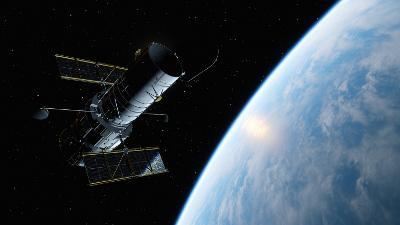Funding success to design sensors for X-ray telescopes

OU researchers within the School of Physical Sciences have been awarded €1 million by the European Space Agency (ESA) to develop a prototype sensor needed for the next generation of X-ray telescopes.
Led by Andrew Holland, Professor of Electro-Optics in the OU’s Space Science priority research area in collaboration with Teledyne-e2v, a world-leading manufacturer of scientific image sensors for space applications, this is a contract under ESA’s Technology Development Element programme to develop prototype sensors for the proposed Transient High Energy Sky and Early Universe Surveyor (THESEUS) mission.
The sensors are required to operate at a relatively high temperature (≈-40 degrees Celsius rather than the usual ≈-110 degrees Celsius) in the space radiation environment, whilst still delivering world-leading performance. Both the OU and e2v have a long history of developing such image sensors for X-ray applications in harsh space environments.
Dr Matthew Soman, Space Instrumentation Research Fellow in the OU’s Faculty of Science Technology, Engineering and Mathematics said: “This will be a very exciting collaborative activity bringing together the pixel design and sensor testing expertise at The Open University with the world-leading detector manufacturers Teledyne-e2v.
“We will be combining the latest technological advances into the sensor design and manufacturing processes to develop a prototype sensor that can demonstrate the high-performance levels needed by the next generations of X-ray telescopes. Once the prototype devices are manufactured, we’ll be testing them with visible light and X-rays, and exploring how their imaging quality changes as a response to the harsh radiation environment of space.”
The funding is for two years to develop a prototype. The sensors the OU team is designing will be manufactured and delivered to them in early 2021. Review of the mission concepts for ESA’s fifth medium-class mission in its cosmic vision programme occurs in Summer 2021 and if selected, THESEUS is planned to launch in 2032.